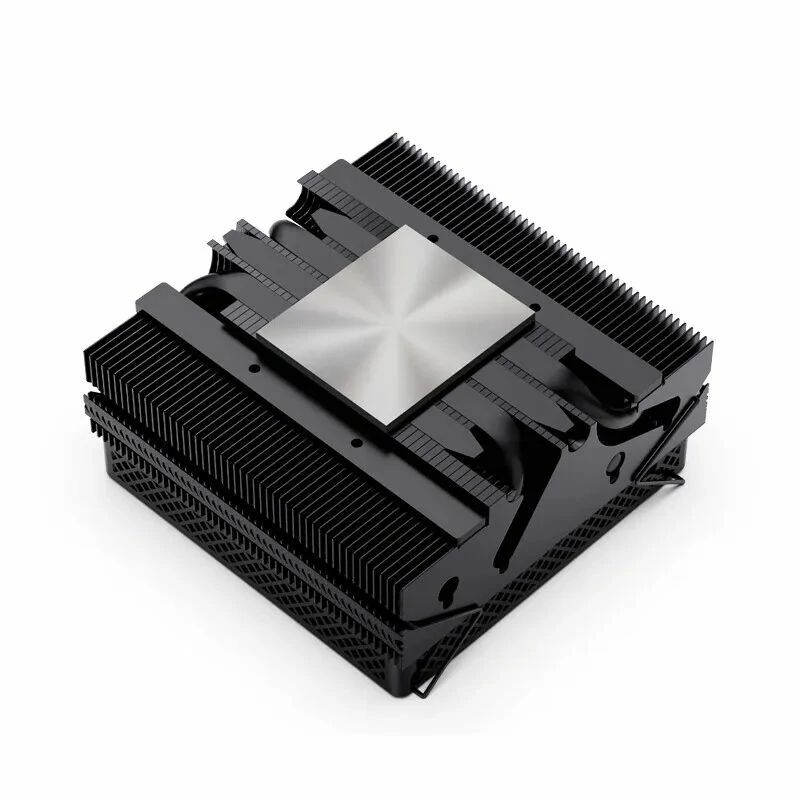How to Select High-Performance Skived Fins for Industrial Thermal Management Systems
In modern industrial environments, efficient heat dissipation is not just a design detail—it’s a business-critical factor. Whether you’re managing industrial automation systems, power electronics, or heavy machinery, overheating can lead to costly downtime and reduced reliability. That’s where high-performance skived fins for industrial thermal management systems come in.
Welleshaft engineers have seen how poorly optimized heat sinks can derail production targets, increase maintenance costs, and even cause compliance failures in international markets. This guide will help you understand how to select high-performance skived fins that meet your industrial cooling needs—technically, economically, and strategically.
Understanding Skived Fin Technology for Industrial Thermal Management
Unlike extruded or stamped fins, skived fins are cut directly from a solid metal block using a precision skiving tool, allowing for ultra-thin fins with tight spacing. This method dramatically increases surface area without using solder or adhesive, resulting in superior thermal conductivity.
Key Characteristics:
- Material options:Aluminum (AL6061, AL1100) and Copper (C1100, C10200)
- Fin thickness:1–0.5 mm
- Base thickness:2–10 mm depending on load
- Applicable standards:ASTM B209, GB/T 3190, ISO 9001:2015
This makes skived fins for industrial heat sinks a preferred choice for high-efficiency thermal management in automation equipment, renewable energy systems, and industrial electronics.
Why High-Performance Skived Fins Outperform Traditional Heat Sinks
Precision Manufacturing Process of Skived Fins for Industrial Systems
Skived fins are produced using controlled feed rates and high-speed blades, ensuring consistent fin geometry and minimal thermal resistance. This level of precision allows better thermal transfer efficiency compared to extruded or bonded-fin designs.
Thermal Conductivity and Surface Area Advantages
Because each fin is part of the same metal substrate, no interface resistance occurs—meaning heat flows more freely. Testing data shows:
- Thermal performance improvement:+18–25% over traditional extruded fins
- Weight reduction:Up to 15% for the same heat load capacity
Comparing Skived Fins vs. Extruded and Bonded Fin Heat Sinks
| Property | Skived Fin Heat Sink | Extruded Fin | Bonded Fin |
| Thermal conductivity | Excellent (no joint resistance) | ปานกลาง | ดี |
| Cost efficiency (large scale) | สูง | Medium | Low |
| Structural integrity | Integral metal | Separate pieces | Multiple joints |
| Maintenance | Low | ปานกลาง | สูง |
The result: high-efficiency skived fins for industrial cooling outperform legacy solutions in both performance and lifecycle cost.
Key Factors in Selecting Skived Fins for Thermal Management Applications
Choosing the right fin geometry and material is crucial for achieving high-performance results.
Material Selection for High-Performance Skived Fins
- Aluminum 6061/1100:Ideal for industrial machinery and automation equipment due to lightweight and cost efficiency.
- Copper 1100/10200:Used in high-power systems (e.g., inverters, power converters) requiring superior heat conductivity.
Fin Geometry, Pitch, and Base Thickness Optimization
Fin height and pitch determine airflow behavior. For forced-air systems, a 2–3 mm fin spacing ensures maximum convection efficiency. In passive systems, thicker fins may perform better.
How to Select the Right Skived Fin Design for Industrial Cooling Systems
When selecting high-performance skived fins for industrial thermal management systems, engineers should consider:
- Thermal load (W/cm²)
- Cooling mode (forced vs. natural)
- Material compatibility
- Manufacturing tolerance (±0.02 mm for fin height)
Welleshaft offers custom skived fins for high-efficiency cooling in industrial machinery, meeting ASTM and ISO quality benchmarks.
Industrial Applications and Case Studies of Skived Fin Heat Sinks
Power Electronics and Renewable Energy Cooling Systems
In a 2024 case study, a German OEM switched to skived aluminum fins from bonded-fin designs, reducing inverter temperature by 11°C and cutting energy consumption by 8%.
HVAC and Heavy-Duty Equipment Thermal Management Solutions
Chinese manufacturers of HVAC compressors used เวลเลชาฟท์ skived fin heat sinks to replace cast-fin designs, achieving 20% better airflow uniformity and lower thermal stress.
How to Select High-Performance Skived Fins for Different Industry Needs
When choosing between copper and aluminum variants, consider corrosion resistance, weight, and long-term maintenance.
For example, aluminum skived fins are preferred in humid or marine industrial environments due to better oxidation resistance.
China-Based Manufacturing and Export Solutions
Welleshaft is a skived fin manufacturer in China serving industrial thermal management markets in the USA, Germany, and Brazil.
Welleshaft’s Precision Skived Fin Manufacturing Process
- Automated CNC skiving machines for ±0.02 mm precision
- In-process thermal resistance monitoring
- 100% surface flatness verification per ISO 2768-mK
Custom Skived Fin Heat Sinks for Global OEM Projects
Welleshaft supplies OEM-grade skived fins for global industrial machinery and electronics brands, ensuring compliance with ASTM B209 and ISO 9001:2015 standards.
FAQ: How to Select High-Performance Skived Fins for Industrial Thermal Management Systems
What are the key parameters to consider when choosing skived fins?
Thermal load, airflow velocity, fin thickness, and material type (aluminum vs. copper) are critical. Welleshaft engineers use simulation-based design to optimize each factor.
How do skived fins improve industrial cooling efficiency?
By increasing surface area and maintaining metallurgical continuity between fin and base, skived fins enable faster heat transfer and longer component lifespan.
Are skived fins cost-effective for large-scale industrial applications?
Yes. Though the initial cost is slightly higher, precision-engineered skived fins provide better performance stability, reducing long-term operational and maintenance costs.
With over 10 years of experience in industrial cooling and precision manufacturing, the เวลเลชาฟท์ Engineering Team specializes in skived fin heat sinks, die-cast thermal modules, and custom heat dissipation systems.
Our engineers have supported over 200+ OEM projects across the USA, Germany, and Brazil, providing data-driven solutions that improve both thermal performance and cost efficiency.

